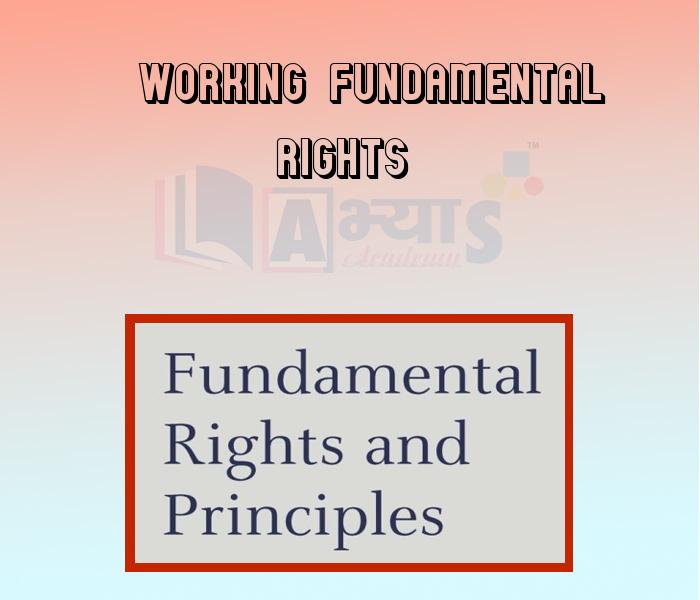Working Fundamental Rights









Working Fundamental Rights
Working Fundamental Rights
The constitution, lays down the principles that make our society and policy democratic. They are defined in and through the list of fundamental rights that are an important part of the constitution. These rights are available to all Indians equally. As far as the marginalized are concerned, they have drawn on these rights in two ways: first, by insisting on their fundamentals rights, they have forced the government to recognize the injustice done to them. Second, they have insisted that the struggles of the marginalized have influenced the government to frame new laws, in keeping with the spirit of the fundamental rights. Article 17 of the constitution states that untouchability has been abolished- what this means is that no one can henceforth prevent Dalit from educating themselves, entering temples, using public facilities etc. it also means that it is wrong to practice untouchability and that this practice will not be tolerated by a democratic government. In fact, untouchability is a punishable crime. In the case of cultural and educational rights, distinct cultural, as well as the right to make decisions on how best this content is to be preserved. Thus, by granting different forms of cultural rights, the constitution tries to ensure cultural justice to such groups. The constitution does this so that the culture of these groups is not dominated nor wiped out by the culture of the majority community.
Students / Parents Reviews [10]
My experience with Abhyas is very good. I have learnt many things here like vedic maths and reasoning also. Teachers here first take our doubts and then there are assignments to verify our weak points.

Shivam Rana
7thMy experience was very good with Abhyas academy. I am studying here from 6th class and I am satisfied by its results in my life. I improved a lot here ahead of school syllabus.

Ayan Ghosh
8thIt was good as the experience because as we had come here we had been improved in a such envirnment created here.Extra is taught which is beneficial for future.

Eshan Arora
8thA marvelous experience with Abhyas. I am glad to share that my ward has achieved more than enough at the Ambala ABHYAS centre. Years have passed on and more and more he has gained. May the centre flourish and develop day by day by the grace of God.

Archit Segal
7thIt has a great methodology. Students here can get analysis to their test quickly.We can learn easily through PPTs and the testing methods are good. We know that where we have to practice

Barkha Arora
10thAbout Abhyas metholodology the teachers are very nice and hardworking toward students.The Centre Head Mrs Anu Sethi is also a brilliant teacher.Abhyas has taught me how to overcome problems and has always taken my doubts and suppoeted me.

Shreya Shrivastava
8thMy experience with Abhyas academy is very good. I did not think that my every subject coming here will be so strong. The main thing is that the online tests had made me learn here more things.

Hiya Gupta
8thIt was a good experience with Abhyas Academy. I even faced problems in starting but slowly and steadily overcomed. Especially reasoning classes helped me a lot.

Cheshta
10thAbhyas Methodology is very good. It is based on according to student and each child manages accordingly to its properly. Methodology has improved the abilities of students to shine them in future.

Manish Kumar
10thOne of the best institutes to develope a child interest in studies.Provides SST and English knowledge also unlike other institutes. Teachers are co operative and friendly online tests andPPT develope practical knowledge also.
